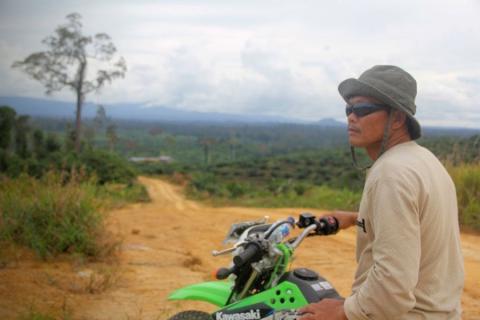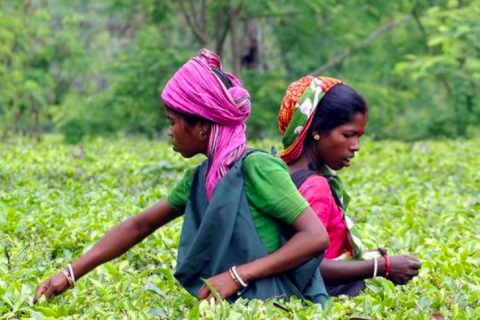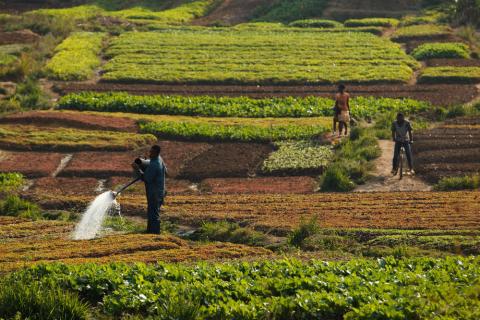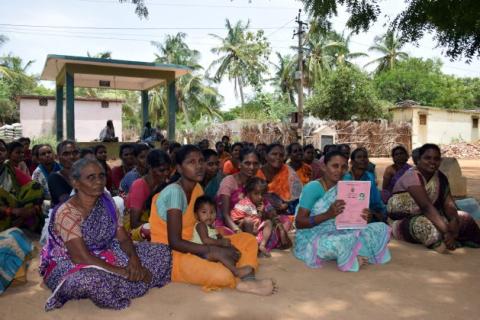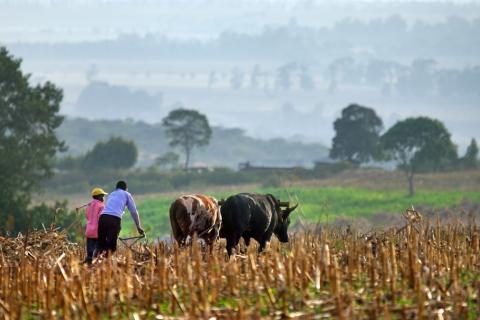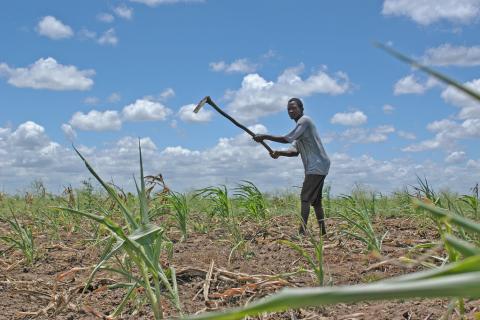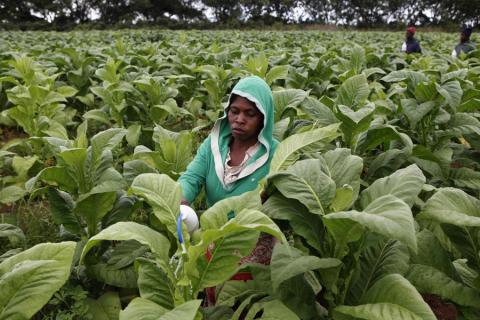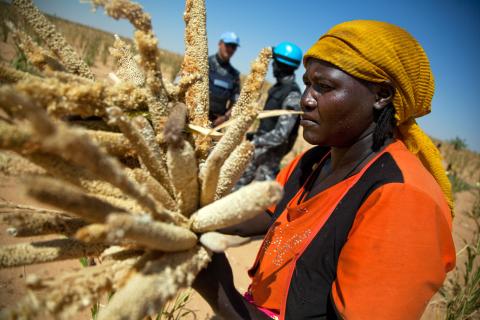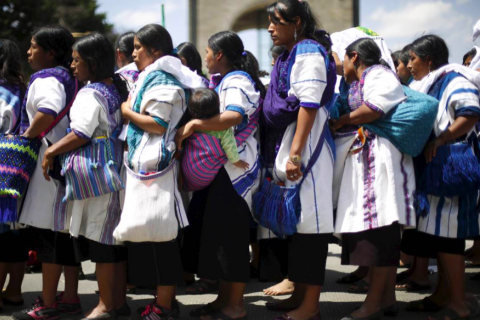
Topics and Regions
Details
Location
Contributions
Displaying 331 - 340 of 400Indigenous lands crucial for conservation
The world’s remaining ‘wild places’ are often envisaged to be packed full of biodiversity, and bereft of one troublesome species: Homo sapiens. But a new global study shows that about 40% of protected and ecologically-intact landscapes are actually under indigenous peoples’ custodianship.
Film puts spotlight on landless estate workers in southern India
Plantation workers in southern India are the unlikely subjects of a Tamil language film whose director said he wanted to draw attention to their struggles, which remain largely unchanged despite the country's fast economic growth.
"Merku Thodarchi Malai" (The Western Ghats), shows the daily lives of workers on cardamom estates in the hills on the frontiers of Tamil Nadu and Kerala states, and explores themes of landlessness, migration, caste and human-animal conflict.
Land Rights Are the Invisible Investment Risk Too Many Ignore
Land conflicts can be fatal for burgeoning agribusiness or other enterprises located in rural regions, but many companies have limited knowledge of how to anticipate and evaluate land-related risk. This is particularly true for land held under collective arrangements by Indigenous peoples or other communities, which is seldom formally documented.
Vacant Land, or Invisible Risk?
Defending women’s land rights
In June 2018, SciTech Europa travelled to Brussels, Belgium, to attend the 2018 instalment of European Development Days (EDD) as the event’s media partner. Organised by the European Commission, EDD brings the development community together each year to share ideas and experiences in ways that inspire new partnerships and innovative solutions to the world’s most pressing challenges.
The land debate must address enabling the disabled
Disabled people have been increasingly recognised as the most marginalised group in any society. This group faces various structural, political and systemic barriers hindering their access, participation and contribution in the economy.
Tunisia's president vows to give women equal inheritance rights
Beji Caid Essebsi says the measure was a long time coming but some are sceptical about the proposal's motivations.
Tunisia's President Beji Caid Essebsi says he will submit a bill to parliament granting women and men equal inheritance rights, in line with a proposal put forward by a government-backed committee.
Land of Plenty, Land of But A Few
“We, the poor.” This is how Francisco Chicompa introduces the peasant families who live in Napai II, a village in the district of Mecuburi, Nampula province in Mozambique. The label stuck like glue: poor is what they were called, and so poor is what they were. Despite this, the land in the region has provided food for him, his wife and his eleven children. The land has provided money to buy clothes and sent the children to school. The land has held memories of his ancestors, which he was of course obliged to pass on, intact, to future generations.
The Quest To Own Land: Sextortion, Coercion and Corruption
In Zimbabwe, Transparency International has been working extensively on land governance issues, and what has emerged is that women are often coerced to engage in sexual acts with a male person in authority in order to have access to land. Land is a form of property and a source of livelihood for most people in Zimbabwe. Both men and women find themselves one way or another being coerced to engage in corruption, mostly bribery to own a piece of land both in the urban and rural/communal areas. However, women are often subjected to sextortion in the quest to own land.
Educating Changemakers About Sextortion in Land Governance
Sextortion: referring to a form of blackmail in which sexual information or images are used to extort sexual favors from the victim. One of the biggest challenges for those working in the land and natural resources sector, has been drawing attention to the fact that this happens in our sector, too and most importantly, that something needs to be done about it.
A timely tribute to the power of women’s land rights
Twenty years ago, I learned a valuable lesson about the power of land and inheritance rights to affirm the status and contributions of women. My father-in-law, then 80 years old, was dividing his land to his children. In doing so, he made a decision that was unusual for a man in Kenya– he gave a piece of land to me, his daughter-in-law. He had come to believe that it was only just to affirm the role that women play in contributing to the household and caring for aging parents.

